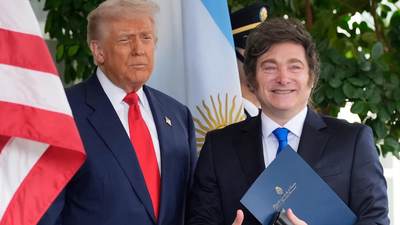Key Takeaways
- Argentina secures $20 billion currency swap with US days before crucial mid-term elections
- Deal aims to boost Argentina’s international reserves and stabilize the volatile peso
- Trump administration ties financial support directly to election outcome
Argentina’s central bank has formalized a $20 billion currency swap agreement with the United States, providing crucial economic support just days before the country’s mid-term elections. The deal, backed by the Trump administration, is seen as a significant boost for President Javier Milei who faces mounting pressure over Argentina’s struggling economy.
Economic Stabilization Measures
According to the central bank statement, the agreement aims to “contribute to Argentina’s economic stability” by strengthening international reserves, preserving price stability, and promoting sustainable economic growth. The Argentine peso has shown high volatility in recent weeks, creating uncertainty for households and businesses amid fears of further depreciation.
Inflation, which had briefly eased after Milei took office in December 2023, has been climbing month-on-month again, undermining confidence in his economic management.
Additional Financial Support
Last week, US Treasury Secretary Scott Bessent announced plans to secure an additional $20 billion facility through “private banks and sovereign wealth funds” to reinforce Argentina’s finances. Economy Minister Luis Caputo had earlier indicated the government hoped to finalize the framework “very soon,” ideally before the midterm vote.
“Hopefully we’ll very soon be able to execute the framework and agreement that will contain the terms of the swap,” Caputo said, alongside Central Bank President Santiago Bausili.
Political Conditions and Market Reaction
President Trump, who recently hosted Milei at the White House, explicitly tied US financial support to the Argentine election outcome.
“If he loses, we are not going to be generous with Argentina,” Trump warned.
His remarks created jitters in Argentine markets, where traders interpreted the aid as politically conditional.
Clarification on International Arrangements
Despite criticism from some US observers who labeled the swap a “bailout,” Central Bank President Bausili clarified that Treasury Secretary Bessent had confirmed the agreement was independent of any arrangements involving China.
The upcoming vote is expected to determine the future of Milei’s market-driven reform agenda and Argentina’s broader financial stability, with the president facing his most crucial electoral test amid economic uncertainty and voter discontent.




